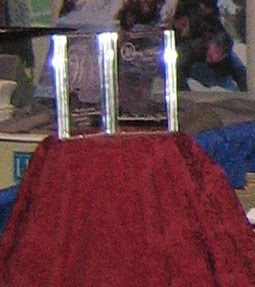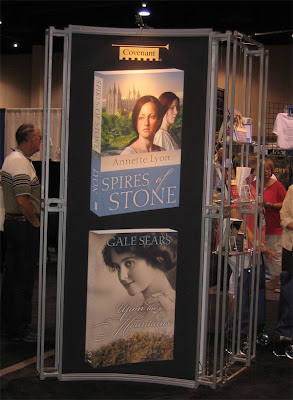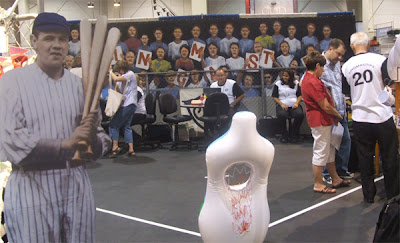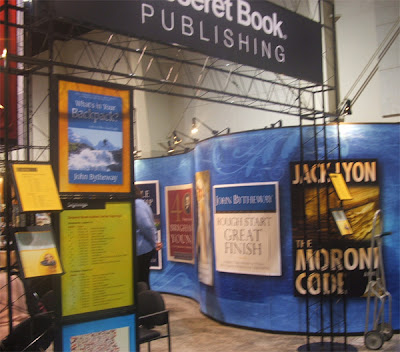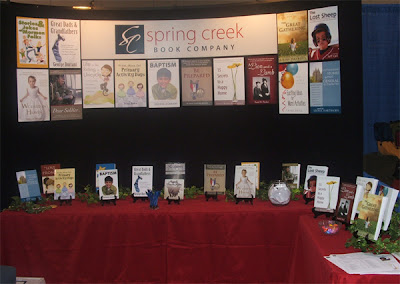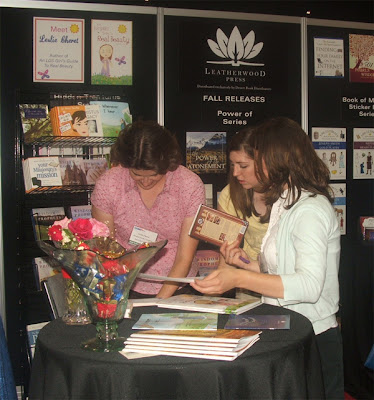Doesn’t promotion/marketing fall mainly to the author, especially in the LDS market? [I added “marketing” to this question, because they’re so closely related.]
No, it doesn’t. Yes, an author has to do a lot of promotion for their book but it is an error in thinking that the author does the majority of the promotion for their book.
Your publisher is going to concentrate on marketing your book to the bookstores, to get it in the stores and on the shelves. A lot of this promotion is very “behind the scenes” to the author. It includes schmoozing, developing industry relationships, phone calls, mailings, e-mailings, faxes, catalogs, order forms, shelf liners, in-store posters, promotional discounts, convention booths, sometimes personal visits to the stores, etc., etc., etc. It also includes things like the cover design and layout of your book, to make it attractive to the buyer, pre-market research, and all sorts of stuff that takes time and costs money–90% of which you, the author, will not see happening. We’re honestly not just sitting there twiddling our thumbs. We have a monetary investment in your book that we want to recoup and to build upon.
The author promotes mainly to the reader via book signings, television and radio shows, newspaper reviews, press releases, bookmarks, business cards, websites, blogs, post cards, firesides, buttons, t-shirts, and whatever else you can think of. (Some of which the publisher will provide, or assist you in creating; all of which you should run past them.)
Dollar for dollar, I know I’ve outspent every single one of my authors in marketing and promoting their books.
Now, for a few other questions. I am going to give you MY answers, as in, OUR company policy. Your publisher may have a different policy and/or attitude. When in doubt, ask them.
Is it acceptable to blog about or announce on your website, an upcoming (6 months or so from now) book release?
Yes. It’s fine to blog about your challenges and rewards of your work in progress, to post about it as you move through the submission and acceptance process, where it’s at in printing and marketing. That’s great. It creates a buzz and an expectation; it also personalizes it to your blog readers. They’ll be more likely to buy your book if they’ve shared your journey.
Don’t post content because 1) it will likely change; 2) if the reader doesn’t care for your first draft, they won’t be drawn to read the finished book.
Also, do not post negative things, like “Gee, my stupid publisher blah, blah, blah” or “I hate my book cover…” All of that puts a negative spin on your book and decreases interest.
Is it acceptable to continue to blog about the book release?
Yes, see above.
Do most publishers provide bookmarks or other promotional items if the author asks for such?
We do—up to a certain amount and under certain conditions. If the author wants more or different items, then we negotiate it on an item by item basis.
Bottom line: an author should obtain permission for all promotion, including blogs?
You shouldn’t have to clear every single blog post with your publisher. We don’t have time for that and we wouldn’t be publishing you if we didn’t have some faith in your writing abilities. However, I really liked Josi’s suggestions about a marketing plan. If you make a quick outline of what you intend to do, include blogging on that list. Then if your publisher has a problem with it, they can contact you to discuss it.

